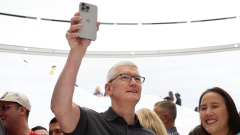- Homepage
- >
- News
- >
- Business
- >
- The Elon Musk vs Sam Altman Feud part 3
There’s no doubt that Elon Musk’s $97.4 billion bid to buy OpenAI was a serious offer. But was it really about acquiring the company, or did Musk have other objectives? As this story develops, it’s becoming clear that Musk’s intentions may have been less about ownership and more about disrupting OpenAI’s transition into a for-profit entity.
Shortly after making the bid, Musk announced that he would withdraw the offer if OpenAI ceased its transition to a for-profit model and remained a nonprofit. Through legal filings, Musk’s lawyers expressed that:
“If (the) OpenAI board is prepared to preserve the charity’s mission and stipulate to take the ‘for sale’ sign off its assets by halting its conversion, Musk will withdraw the bid.”
This raises questions regarding whether Musk is genuinely trying to buy OpenAI or if this bid was another tactical move in his ongoing feud with Sam Altman and OpenAI.
Elon Musk’s corporate strategy and personal vendetta
As the feud between Musk and Altman continues, it’s becoming increasingly clear that Musk’s attack on OpenAI is more of a personal vendetta and a corporate strategy than anything else. Musk’s frustration with OpenAI stems from two key factors: (1) He was an early co-founder and major financial contributor to OpenAI but walked away with no financial return when the company was still a nonprofit, and (2) his own artificial intelligence (AI) company, xAI, is a direct competitor to OpenAI, but it lags in both market share and brand recognition.
Musk has publicly expressed dissatisfaction with OpenAI’s decision to shift from its nonprofit roots to a for-profit model, claiming that the move betrays its original mission—the mission that he helped fund. This is why, in his court filings, Musk continues to claim that Altman and OpenAI breached the original terms of Musk’s financial contribution. However, it’s impossible to ignore that xAI’s slow progress makes OpenAI’s continued success a direct threat to Musk’s own AI company.
In the highly competitive, rapidly growing AI industry, OpenAI has established itself as a dominant player. Thanks to the widespread adoption of ChatGPT, it’s estimated that OpenAI holds roughly 34% of the generative AI chatbot market share—a decline from the over 50% it held in late 2024 but still a significant number. Meanwhile, the percentage of xAI’s Grok chatbot market remains relatively unknown.
Unlike OpenAI, xAI lacks the visibility and product adoption needed to compete on equal footing. Without a strong market presence, xAI would need to deliver a superior product and strong marketing just to close the gap–which is an uphill battle, given where each company is positioned at this point in the AI race. So, instead of competing purely on product, Musk has taken a different approach: deploying disruptive tactics that thwart OpenAI’s progress, which gives xAI time to gain ground while OpenAI has to put out the fires that Musk is starting.
To date, Musk’s tactics have included a lawsuit in which he challenges OpenAI’s transition to a for-profit model, negative public statements through social media platform X, where he openly criticizes OpenAI’s leadership, and most recently, the $97.4 billion bid to acquire OpenAI. Even though OpenAI ultimately rejected Musk’s offer on February 14, the bid itself served as a disrup




